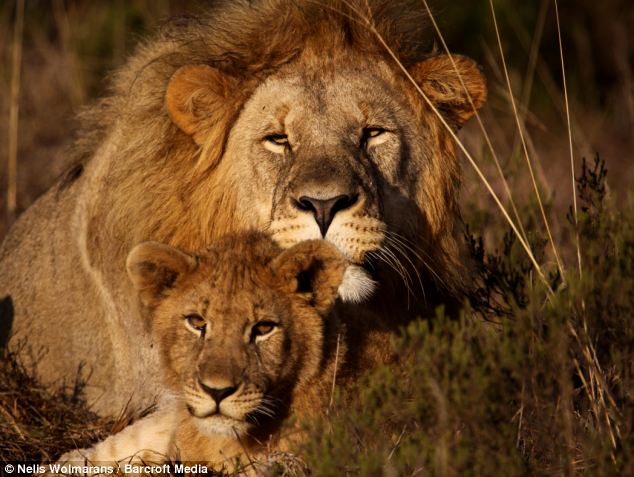Cecil, a well-known, protected lion who lived in Zimbabwe’s Hwange National Park, is seen in this frame grab taken from a November 2012 video made available by Paula French.
The 193-member General Assembly adopted its first resolution on the issue following a two-year campaign by Germany and Gabon.
“Like most people in the world we are outraged at what happened to this poor lion,” Germany’s U.N. Ambassador Harald Braun told reporters after the resolution was adopted. “Hunting activities are partly legal, partly illegal and it is this resolution which fights all the illegal aspects of it.”
A Zimbabwean court on Wednesday charged a professional hunter with failing to prevent an American from unlawfully killing “Cecil,” in a case that has triggered widespread revulsion at trophy hunting.
Braun said the animals most threatened by wildlife poaching are elephants and rhinos and that the money from the trade is one of the key sources of finance for terrorism. He said every day in Africa some 100 elephants are killed by poachers.
“There is a black market for rhino horn, and a pound of rhino horn today yields more than a pound of gold in this market,” he said, adding that the value of ivory from poached elephant tusks was only a fraction of the value that a living elephant could provide to a country’s economy through tourism.
A global ivory trade ban went into effect in 1989 after Africa’s elephant population plunged from 1.2 million to 600,000. But illegal trade continues, with demand strong in China, other Asian states and places like the United States.
The U.N. resolution urges states to “take decisive steps at the national level to prevent, combat and eradicate the illegal trade in wildlife, on both the supply and demand sides, including by strengthening the legislation necessary for the prevention, investigation and prosecution.”
It asks U.N. Secretary-General Ban Ki-moon to report to the General Assembly on the global status of illicit trafficking in wildlife and to consider appointing a special envoy “to promote awareness and galvanize international action.”
Resolutions passed by the General Assembly are non-binding but can carry political weight.
Gabon’s Foreign Minister Emmanuel Issoze-Ngondet told the General Assembly that illicit wildlife trafficking threatens the stability and economic development of many countries.
“Terrorist and armed groups operating in Africa, notably, are using poaching and illicit trafficking of wildlife to increase their incomes. … This contributes to the proliferation of weapons in Africa,” he said.



